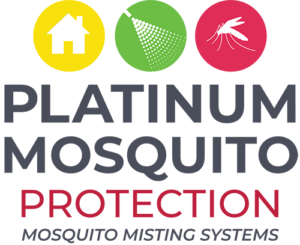Are these dangerous plants growing in your yard?
South Florida can be a scary place to garden.
For starters, the seasons do not exactly match with the rest of the country. Just as they’re settling in for a long winter’s nap, we’re planning and planting, sowing and growing.
Then, there is the overwhelming selection of plants — and if you’re like most gardeners, you’d like one of each.
All that blooms, though, is not gold. In fact, many of the plants we admire can be downright dangerous. With a little research and careful selection, though, South Florida gardeners can create a space that’s a paradise for all family members, including their pets.
Pretty Poison
Some of the most colorful and beautiful plants in South Florida landscapes are also some of the most toxic – either the leaves, the flowers, the seeds, or all of the above. For those reasons, many of the plants listed below should be handled and enjoyed with care or avoided, no matter if they’re in your landscape or a neighbor’s.
-
Allamanda:
The bright yellow trumpet-shaped flowers open to mark the start of South Florida’s warm season.
Sadly, with the exception of Allamanda neriifolia, the plant is poisonous to humans. Exposure to the milky sap can cause a burning rash and possibly blisters. Wear protective clothing if you’re working with it.
-
Angel’s Trumpet:
This plant, actually a shrub that is often allowed to grow into a small tree, is loved for its pendulous, bell-like blooms. They’re big and colorful and scented, especially in the evening. It’s also known as Brugmansia, Jimson Weed, and – most suitably – Trumpet of Death.
All parts of the plant are toxic, with the leaves and seeds known for their hallucinogenic properties. Unfortunately, many young people are drawn to the plant for this reason, and the result of their experimentation is frequently fatal. Gardeners are encouraged to wear gloves if handling the plant.
-
Caladium:
The colorful leaves are a great way to add masses of color to shady areas. Within the red, green, pink, and white foliage, though, are insoluble calcium oxalate crystals.
Chewing on a leaf, as some pets may be prone to do, can result in those crystals penetrating oral tissue, which can result in swelling of the lips, tongue, and mouth, drooling, and vomiting. Elephant Ears and Philodendron leaves also contain these crystals.
-
Oleander:
Very often, Oleander is planted as either a specimen or hedge, prized for the clusters of flowers in shades of red, pink, white, and yellow. It’s also one of the most toxic plants in the South Florida garden.
All parts of the plant contain toxins that exist when those parts are either green or dried. Ingestion of any part of Oleander can cause serious illness or even death.
-
Poinsettia:
There is bad news and good news when it comes to this holiday staple. First, the bad news: It’s toxic. Now, the good news: It’s mildly toxic.
To put that into some kind of perspective, a child would have to eat 500 leaves to get sick, although five leaves are enough to produce nausea and/or vomiting. Because the leaves have an unpleasant taste, though, most children would probably stop after a bite or two.
It’s the same for pets. Ingestion results in mild vomiting, drooling, and diarrhea – all of which are the body’s natural methods for getting rid of what’s bad.
-
Bromeliads:
While these plants, adaptable to sun and shade, are abundant throughout many South Florida landscapes, they do pose somewhat of a risk in this age of Zika.
The structure of the plant is designed to catch water in the center cup. It’s in this water where mosquito larvae develop – and this has turned this eye-catching and relatively easy plant into a beast that requires regular flushing and other types of mosquito management. In fact, the City of Miami Beach is now removing bromeliads from all public landscaping and encourages residents to do the same to combat Zika.
Resources
With a little bit of research, you can discover plants that are safe for you, your family, and your pets. If you decide on one of the dangerous species, be sure to practice safe gardening.
To help you along, here are some resources that may provide some answers to your gardening concerns:
• ASPCA: Toxic and Non-Toxic Plants
• The Gardeners Network
• Pet Poison Helpline
• South Florida Plant Guide
Control mosquitos while spending time in your garden
Your garden shouldn’t be a place of hidden dangers, whether it’s from a plant or a swarm of mosquitos. Let Platinum Mosquito Protection help you to enjoy your outside spaces. Our automatic misting systems use Pyrethrum, an extract of the chrysanthemum flower that can help keep these dangerous pests away from your home and business – and your beloved garden. Contact us today for a free consultation.

